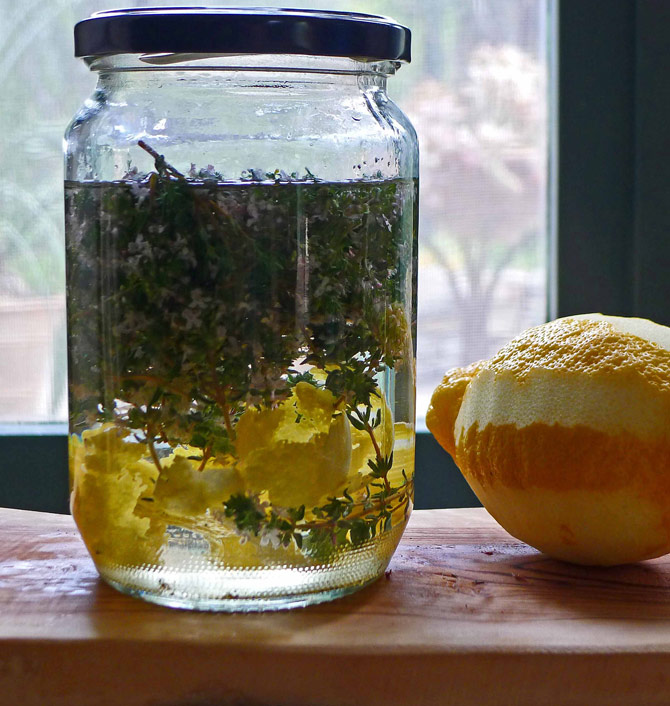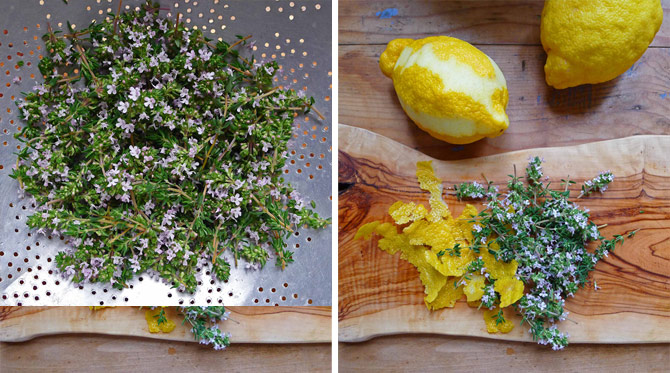The French believe that thyme tisane is an excellent digestive and the perfect treatment for a hangover. But I suggest thyme not for its medicinal properties, but because its aroma, especially complemented with the lemon peels and with a bit of help from the alcohol, will transport you to the rugged hills overlooking the dark-blue sea—and if that is not therapeutic, I don’t know what is.

Makes about 2 quarts (2 L)
2 cups flowering thyme tops (see note)
4 very fresh, thick-skinned organic lemons
1 quart (960 ml) vodka
For the syrup:
3 cups (600 g) sugar
In a colander rinse the thyme under running water.
Wash and dry the lemons. Using a vegetable peeler, remove about two-thirds of the yellow part of the peel from each lemon. Make very thin strips, starting from the tip of the lemon and ending at the stem.

You will end up with a mostly white lemon with a few yellow stripes. Use the lemons for Bitter Orange and Lemon Marmalade, or juice them to make Lemon Curd.
Place the thyme and peels in a 1-quart (960-ml) Mason jar and fill with vodka. Let stand at room temperature for 3-4 weeks, shaking every now and then. If you want to speed the process, leave the jar in the sun for 1-2 hours every day, and taste after 5-6 days. If the vodka is fragrant enough, proceed to the next step.

Make the syrup: In a saucepan, mix the sugar with 3 1/2 cups (840 ml) water and cook over medium heat for 2 to 3 minutes, until the sugar dissolves completely. Turn down the heat and keep the mixture simmering.
Drain the vodka through a sieve into a clean jar and set aside.
Keep only the peels in the sieve –discard the thyme– and place the sieve over a large bowl. Pour the boiling syrup over the peels. Discard the peels and set the syrup aside until completely cold. Mix the infused vodka with the cold syrup. Pour the thyme and lemon liqueur into clean bottles, seal, and store in the refrigerator.
NOTE: Use only one cup if you find the strongly aromatic wild Greek thyme, and infuse it just a few days only –taste after 3 days; good-quality dried thyme can be substituted and the common European thyme is excellent.